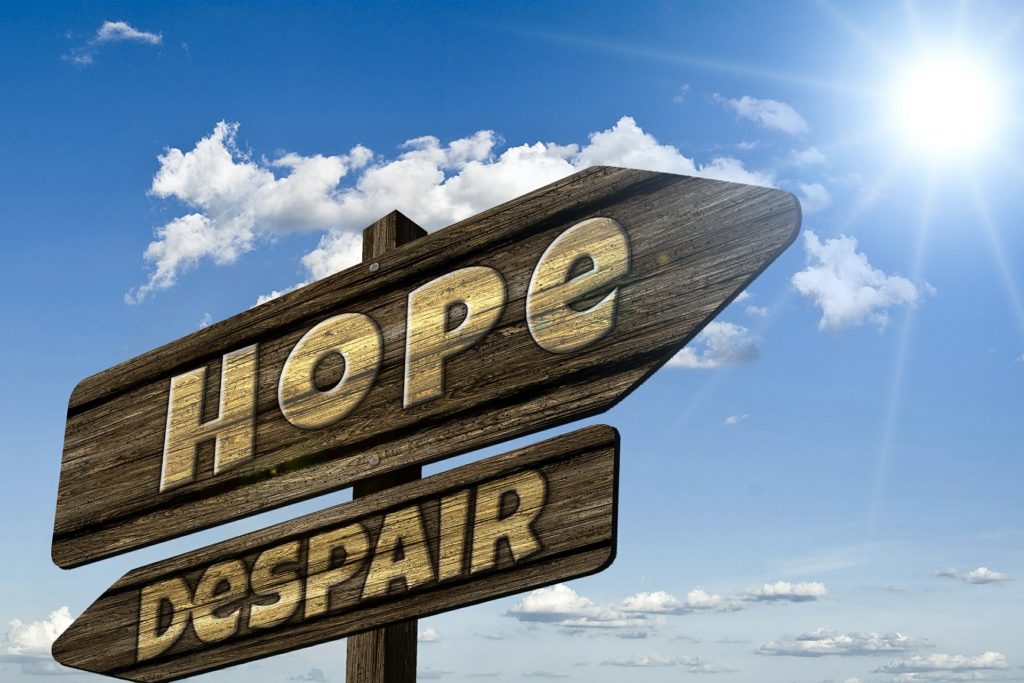
I have been drawn back to the admonitions of Cornell West and Vaclav Havel over the years about the concept of hope. And in this post Easter moment, their words resound again, only this time their meditations are reflected back to me in the words of my colleague Erika Hewitt. As we continue to emerge out of the pandemic which has plagued us and wrestle with the endemic realities of COVID-19, and as we continue to witness the horror of war in Ukraine and other parts of the world, as we prepare to mark another day of remembrance about the Holocaust , I am particularly drawn to these meditations.
West is noted for reflecting that “to live is to wrestle with despair, yet never allow despair to have the last word.” Which seems to me a supreme spiritual discipline as we face the unknown future that now contains the memory and uncertainty of dis-ease that has had global impact. We’ve been here before. Those who remember the AIDs pandemic, those who suffered from polio before there was a vaccine, those who can still recall memories of a world at war attest to this.
Havel notes about hope, in particular, it “. . . is not the same as joy that things are going well or willingness to invest in enterprises that are obviously headed for early success, but rather an ability to work for something because it is good, not because it stands a chance to succeed.” Hope, therefore, applied to West’s reflection, is not about winning the wrestling match, because not everyone does. It is about an orientation toward the effort, which says, this is what I must do regardless of the outcome, and I am able to define my effort, not the dis-ease that I am confronting.
Hewett’s response places both of these orientations toward living in hard times in perspective by reminding us that we need not submit to those powers that demand that our struggles be solitary efforts.
“In her 1975 theological treatise, Suffering, German liberation theologian Dorothee Söelle* examines the ways that suffering can knit humans beings closer together, and can draw us more fully into the process of loving. She uses the term apatheia, “the inability to suffer,” to describe the condition in which people become “so dominated by the goal of avoiding suffering that it becomes a goal to avoid human relationships and contacts altogether.”
Isolation and apathy are forms of powerlessness. Both destroy—in Söelle’s words, “We are destroyed most thoroughly by that affliction that robs us of any possibility of loving any longer. . . . The capacity we need the most [is] the capacity to keep on loving.”
If pain and suffering tempt us to become isolated and apathetic, Söelle argues, we must instead give voice to our suffering by creating “a language of lament” that might draw us into solidarity.
The theology offered by Dorothee Söelle echoes that of her rough contemporary, Hannah Arendt—who was a political theorist, rather than a theologian. One of Arendt’s most well-known assertions, from her work The Origins of Totalitarianism, is that “totalitarianism is organized loneliness,” and that the seed of loneliness is isolation: “the experience of not belonging to the world at all, which is among the most radical and desperate experiences of [human beings].”
Therefore, resisting the isolation that breeds loneliness is not just an emotional, psychological, or even spiritual act, but also a political one. The blogger and critic Maria Popova puts it this way: “Our insistence on belonging, community, and human connection is one of the greatest acts of courage and resistance in the face of oppression.”
Blessings,
Aaron
